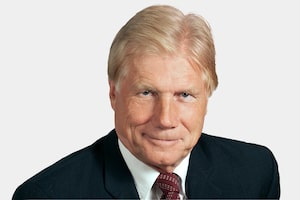Why, in the 2011 election, would the Conservatives have a telephone marketing company contact voters about polling station changes when Elections Canada, as it claims, had told them and other parties not to do so?
A better question: Why would the Conservatives have the company run such a phone blitz in ridings that, if we are to believe court documents filed last week, had no polling station changes? And better still: Why, according to the same documents, would large numbers of non-Conservative Party members be called about polling location changes?
The questions arise from allegations raised in a factum filed in the Federal Court in the vote-suppression case confronting the Conservatives. Voters in six ridings are seeking to have election results overturned, arguing that the Conservatives tried to prevent opponents from voting. Elections Canada has received 1,400 complaints of misleading calls, automated or non-automated, from 234 ridings across the country.
At issue here is the legitimacy of the Conservative government. If the allegations are substantiated, they would arguably be worse than the sponsorship scandal that crippled the Liberal Party. Sponsorship was about lower-level Quebec operatives running off with the cash from a government advertising program to promote unity. Vote suppression is a campaign to throttle the workings of democracy by disenfranchising voters. It strikes at the heart of the democratic system.
The 140-page court document laying out the plaintiffs' case looks strong on some points, not so convincing on others.
Contacted on the weekend, 2011 Conservative election campaign chair Guy Giorno (who has previously denied party involvement in any vote suppression activities) chose not to respond. Fred DeLorey, a spokesman for Prime Minister Stephen Harper, sent a reply that did not address particulars of the questions. "We knew Elections Canada had changed some polls," he said, "and we wanted to make sure all of our supporters knew where to vote."
Some key players have hardly been forthcoming. It was reported last week that Ken Morgan, one of the Conservative operatives in the riding of Guelph (a focus of the investigation) and who declined to be interviewed by Elections Canada, has moved to Kuwait, where reporters have been unable to track him down.
In an affidavit filed last week, Andrew Langhorne, head of Responsive Marketing Group (the telephone firm hired by the Conservatives) flat-out denies having given voters bad information about polling stations. Referring to scripts and recordings that he says can prove it, he rejects former RMG employee Annette Desgagne's claims that she and other callers directed voters to incorrect polling stations. But RMG has declined requests from lawyers for the applicants to turn over recordings of voter contact calls.
Given that RMG employed more than 1,500 people to work the phone banks, it is noteworthy that only one, Ms. Desgagne, has made such allegations about the calls. Why haven't many more come forward? The case might be stronger, too, if the plaintiffs from the six ridings were prevented from voting because of the alleged misdirection – but they did cast ballots.
The Conservatives will still have a lot of explaining to do, however. According to the court document prepared by applicants' counsel Steven Shrybman, there were no polling station changes in five of the six ridings, but calls were made to electors in five of the six. More intriguing, a public-opinion survey by Ekos found that most of the calls went to supporters of other parties. The Conservatives have challenged the poll's accuracy, saying Ekos is biased against them. But in the court document, another public-opinion analyst, Neil Nevitte, points to many holes in that critique.
The case, to be heard beginning Dec. 10, is shaping up as high-stakes drama. In the months following it, Elections Canada is expected to release the results of its vote-suppression investigation.
A new Environics poll shows Mr. Harper's trust ratings with the public to be among the lowest among leaders in a survey of 26 countries in the Americas. He can ill afford to have his party found culpable of running a campaign to disenfranchise opponents.
 Lawrence Martin
Lawrence Martin